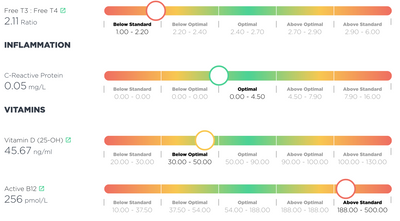
According to the International Protein Board – it’s still common to come across internet and magazine articles, social media posts and - even some professional commentary – that suggest protein intakes above the current base requirement levels - present a risk to the function and health of various tissue - such as the kidneys, liver and bone.
However - the potential adverse effect of higher protein intakes on human health are generally unfounded and – are in contrast to the most current evidence-based understanding of the issue. So – let’s take a look at a couple of common misconceptions regarding the safety of protein intake...
Does too much protein create kidney damage?
A group of researchers from the University of Waterloo in Canada - found that changes in kidney function – don’t differ between healthy adults consuming higher amounts of protein – when compared with lower or normal-protein diets.
In summary – they noted that the results of the current meta-analysis suggest a nonexistent or trivial effect of High Protein consumption on glomerular filtration rate in individuals with normal kidney function.
Additionally – they suggest there is no evidential link that shows that High Protein intake somehow leads to a decline in renal function in otherwise healthy people - and - as our analysis indicates - even in populations with greater risk for declines in renal function - such as those with type 2 diabetes.
Currently - there’s no evidence showing individuals with normal renal function - who consume high levels of protein - will have problems with their renal health.
Both meta-analyses - and human studies - propose even high levels of protein in the diet doesn’t damage renal function. In subjects with intact renal function - higher dietary protein levels caused some functional and morphological adaptations - without negative effects.
Does too much protein result in acidosis causing dissolving of the bones?
A study from Harvard University - led by Professor Walter Willett - observed that people following higher protein diets had a higher calcium content in their urine.
Professor Willet explained that the acid-ash hypothesis that resulted from this observation - and the calcium that present in the urine of those on a higher protein diet - is not from your bones – but from your body which actually absorbs more calcium - so you get rid of more calcium.
It is interesting to note that 50 percent of bone is made up of collagen protein – and with adequate calcium and vitamin D intake - protein is bone supportive. This evidence was supported by the meta-analysis sponsored by the National Osteoporosis Foundation.
